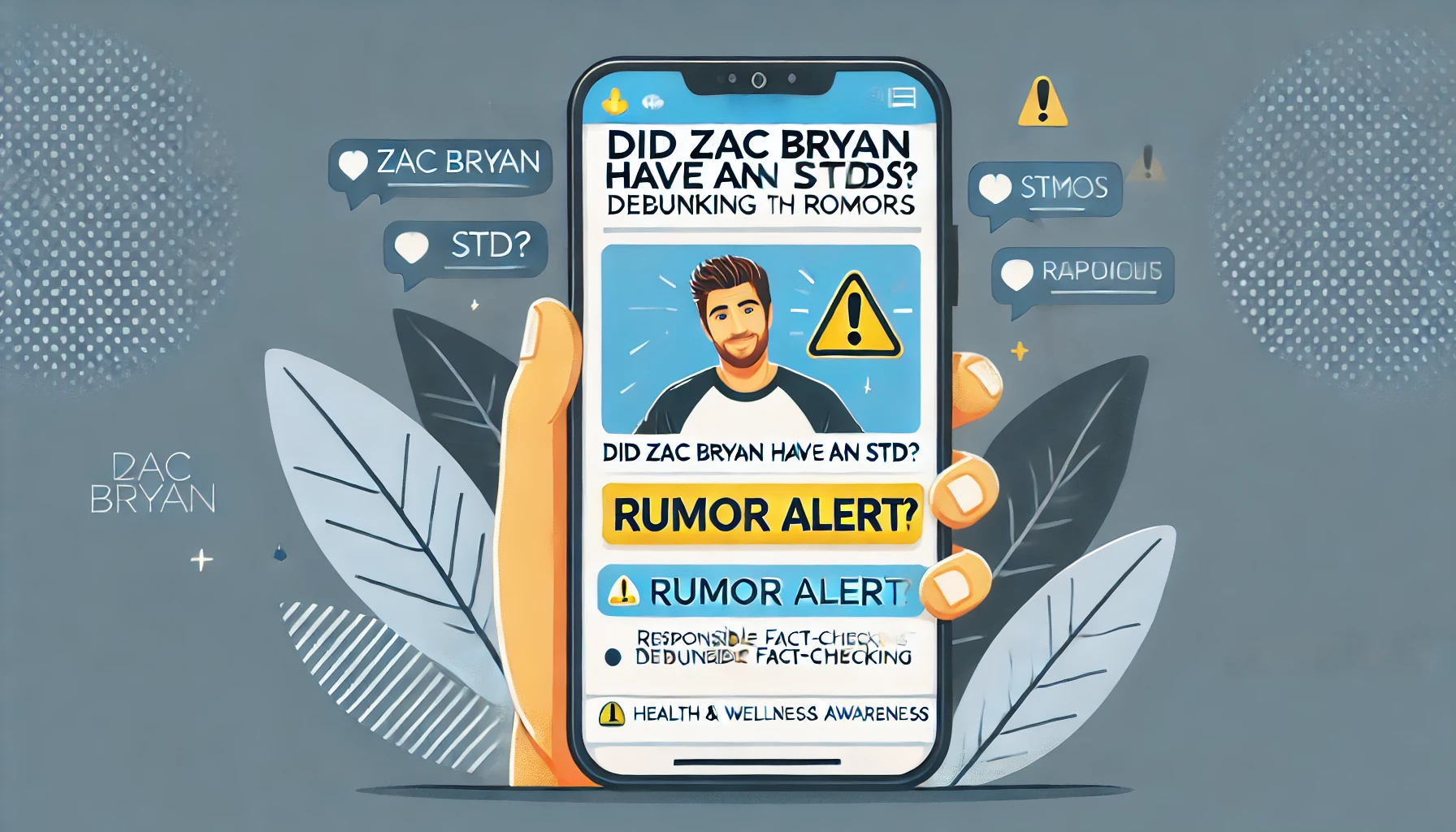Rumors about celebrities spread quickly, and sometimes they involve serious topics like health. Recently, speculation has surfaced about whether country music star Zac Bryan has a sexually transmitted disease (STD). But is there any truth to these claims, or is it just another case of celebrity misinformation? In this article, we’ll fact-check the rumors, explore how these stories spread, and discuss why STD stigma remains a problem in society.
Where Did the Zac Bryan STD Rumors Start?
There’s no verified medical evidence or official statement confirming that Zac Bryan has an STD. The rumor appears to have started: ✔️ On social media platforms like Twitter and Reddit.
✔️ Through online gossip blogs spreading unverified claims.
✔️ As a joke or meme that people misunderstood as fact.
Unfortunately, once a rumor gains traction online, it’s hard to stop—especially when it involves a high-profile celebrity like Zac Bryan.

Is There Any Truth to These Claims?
📌 No verified sources (such as Zac Bryan himself, medical records, or reputable news outlets) have confirmed this rumor.
📌 Most claims come from anonymous online posts without credible evidence.
📌 Spreading false health information can harm reputations and contribute to harmful stigma about STDs.
In short, there is no factual basis for this rumor—it’s just another celebrity gossip story with no medical proof.
Why Do STD Rumors About Celebrities Spread So Fast?
🚀 Social Media Virality – Platforms like TikTok, Twitter, and Instagram allow misinformation to spread in seconds.
📰 Clickbait Headlines – Websites use shocking titles to attract readers, even if the story isn’t true.
👥 Stigma & Gossip Culture – People still associate STDs with shame, making these stories spread quickly.
🤷 Lack of Awareness – Many people don’t understand STDs, leading to misconceptions and judgment.
The Impact of STD Stigma
The stigma around STDs makes people less likely to get tested or seek treatment. Spreading false rumors about someone’s sexual health can: ❌ Damage reputations with false information.
❌ Increase public fear and misinformation about STDs.
❌ Discourage people from talking about sexual health openly.
The truth is, STDs are common and treatable. They do not define a person’s character or worth.
How to Identify Fake Health News Online
Before sharing a health rumor, ask yourself: ✅ Is it from a reliable source? (CDC, Mayo Clinic, verified news sites) ✅ Are there official statements or medical records? ✅ Does the story use vague sources like “someone close to them” or “a social media user”? ✅ Are multiple trusted sources confirming the claim?
If the answer is “no” to any of these, don’t share it—it’s likely just another false celebrity rumor.
Final Thoughts: Fact Over Fiction
At the end of the day, there’s no evidence that Zac Bryan has an STD. This rumor is unverified gossip that reflects a larger issue of misinformation and stigma around STDs. Instead of spreading false health claims, let’s work toward educating people on sexual health in a responsible way. ✅
References
- Centers for Disease Control and Prevention (CDC). “STD Facts & Misinformation.” www.cdc.gov/std
- Mayo Clinic. “Common STD Myths and Facts.” www.mayoclinic.org
- World Health Organization (WHO). “Sexually Transmitted Infections and Stigma.” www.who.int


Leave a Reply